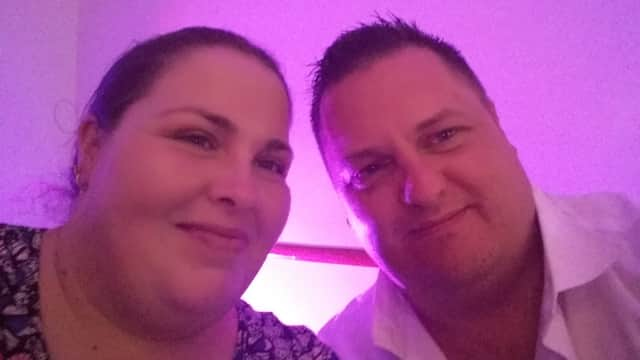"Number of opportunities missed" to save pregnant Kimberworth woman, inquest heard


THE death of a woman who was nine weeks pregnant and had to wait two and a half hours for an ambulance could have been "wholly preventable", a coroner said after her two day inquest concluded yesterday (Tuesday).
Gail Bailey, (36), of Sopewell Road, Kimberworth, died from an ectopic pregnancy whilst on holiday in Ingoldmells, Lincolnshire, with her husband and other family members in August last year.
Advertisement
Hide AdAdvertisement
Hide AdHusband Ryan Bailey, (37) called an ambulance for his wife because she was suffering with severe abdominal pains, after he sought advice over the phone from the Early Pregnancy Unit at Rotherham Hospital and was advised his wife needed to be checked over.
The Lincoln Coroner, Mr Paul Smith, heard that Mr Bailey dialled 999 at 5.02pm with no idea it would end up taking two hours and 38 minutes for an ambulance to finally arrive at the holiday park at 7.30pm and take Mrs Bailey the 25 miles to the nearest hospital in Boston.
Mrs Bailey was pronounced dead 50 minutes after arriving to hospital - nearly four hours after the original 999 call was taken.
Mr Smith said that based on the balance of probability, Mrs Bailey would have survived if the ambulance had reached the hospital at the time it arrived at the caravan park.
Advertisement
Hide AdAdvertisement
Hide Ad"It took two 999 calls, four different ambulances and two hours 38 minutes for an ambulance to reach Mrs Bailey," Mr Smith added.
The NHS Trust of East Midlands Ambulance Service has admitted that their care of Mrs Bailey's case was "not as it should have been".
Dr John Stephenson, medical director for East Midlands Ambulance Service, said: “We would like to offer our sincere and heartfelt condolences to the Bailey family on their sad loss.
“We fully accept the coroner’s findings and conclusions and we have put measures in place within the Trust to prevent this from happening again.”
Advertisement
Hide AdAdvertisement
Hide AdIt was heard that East Midlands Ambulance Service was in a "high capacity call status", but this wasn't deemed unusual.
There were also not enough resources and a number of staff members had called in sick.
Just moment after Mrs Bailey's call came in, EMAS also had to deal with a secondary emergency call concerning a patient with a wasp stuck in their throat.
Evidence was given by Anna Kennedy, who manages and evaluates 999 calls at EMAS, Gary Maynard, dispatch officer at EMAS, and Susan Jevons, who was the on-call tactical commander and gave a triage assessment to Mrs Bailey on the day she died.
Advertisement
Hide AdAdvertisement
Hide AdAfter the wasp patient was declared a category 4 case by the initial call taker and Mrs Bailey was classed category 2, all three staff members still had concerns the other patient's condition may escalate to category 1 (the highest priority).
This resulted in the ambulance originally being assigned to Mrs Bailey being diverted and stood "in reserve" for 18 minutes, waiting for news of the wasp-related call - which in the end did not escalate any further.
At this time, an ambulance was only 15 minutes away from Mrs Bailey's location.
During this time, Mrs Bailey's call was dowgraded to a category 3 call.
Advertisement
Hide AdAdvertisement
Hide AdTactical commander Ms Jevons assesed Mrs Bailey's symptoms with her husband over the phone and gave the incorrect diagnosis of appendicitis.
The coroner said there were "a number of opportunities missed" to handle Mrs Bailey's call differently.
Mr Bailey had to make a second 999 call at 6.30pm after his wife's condition had worsened, but there were no ambulances available to send out to her by this point.
The second lengthy wait was factored into Mrs Bailey's deterioration and left her unable to get the emergency treatment she needed, which eventually led to her death.
Advertisement
Hide AdAdvertisement
Hide AdAfter the inquest, Mr Bailey said it had been a "very emotional process" and he had been forced to wait 16 months for the two day inquest to be heard.
He said he was satisfied with the coroner's narrative conculsion, which confirmed what he had spent months thinking - that his wife's death could have been prevented.
"There are no words to describe what it was like watching my wife die," Mr Bailey added.
"My head was spinning. One minute she was fine, the next I was identifying her body.
Advertisement
Hide AdAdvertisement
Hide Ad"My wife would still be here today if it wasn't for the decisions made on that day."
Mr Bailey said: "I wanted to fight and make sure this situation never happens to anyone else ever again and my wife didn't die in vain."